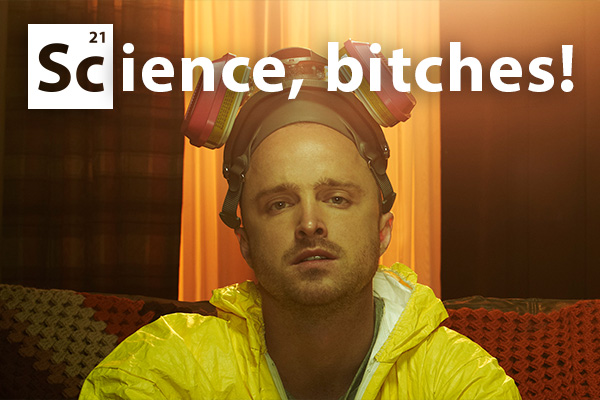Science, Bitches! | Issue 16
Bonking Behaviour
Does size actually matter? Humans certainly sport larger penises relative to body size than other primates. Research published in the appropriately-titled journal PNAS (Proceedings of the National Academy of Sciences) suggests that humans may have evolved longer penises thanks to female mating choices. Scientists from the University of Ottowa used images of male silhouettes to assess women’s preferences regarding the male physique – one of the results was an apparent preference for longer penises.
The authors suggest that early females may have selected mates based on this trait – perhaps because it increased sexual pleasure. Others suggest that male-male competition was the cause: a longer penis may have endowed the male with the ability to deposit sperm nearer the cervix, increasing his chance of reproductive success. The arrowhead shape of the penis has also been implicated in this competition: the shape may have evolved as a sperm-scoop, removing the sperm of any previous males in favour of the extant ejaculate.
Another change has occurred in the human penis since the split from our monkey cousins – the loss of penile spines. Chimpanzees have small horny humps on their penises, which decrease the time needed for copulation. In promiscuous species like chimps, faster is better in the race to impregnate females. It is thought that the loss of penis spines has led to humans having sex for much longer periods, in turn increasing the chance of pair bonding (and subsequent co-effort to raise children) occurring between the partners.
Longer love-making isn’t the only human sexual practice to evolve as a pair-bonding mechanism. Ever wondered why the missionary position is so common? It is thought that this face-to-face approach, combined with lengthy spells of copulation, increases the pair bonding response associated with sex.
Orgasm, too, seems to encourage us to form a connection with our sex partners. Oxytocin, a hormone with roles in social behaviour, birth and maternal bonding, is also released into the human brain following orgasm. The release of this hormone into the brain during sex is necessary for proper monogamous bonding in other animals, like the prairie vole. However, its function is yet to be conclusively proven in humans.
And what about kissing? When did we start to associate rubbing our mouths together, exchanging saliva and potentially a bit of dinner, with sexytime? If you think too hard about it, the idea of kissing can start to seem quite gross. Surely we risk passing germs this way, and it’s not essential for sex, so why do we do it?
When we come into face-to-face contact, we are actually smelling each other to see if our genes are too similar. Sounds crazy, but it’s true! There are certain genes, collectively termed the Major Histocompatibility Complex (MHC), which are really important for the immune system’s ability to fight different infections. It’s been shown that men whose MHC genes are very similar to those of a woman smell less attractive to her, while men whose MHC genes are different smell much more attractive.
The evolutionary reasoning for these sexy smells says that offspring born to parents who posses similar MHC genes will have less variation in their immune genes, which will make them more vulnerable to illness. However, babies whose parents have very different MHC genes will have more immune system variation, and will therefore be better at withstanding infection. So when you find someone’s smell super sexy, what you are actually saying is “mmmm, what healthy babies I could make with that delicious hunk.”
Next time you engage in a spot o’ the old mate-choice yourself (perhaps on the Monkey Bar D-floor), bear in mind these sexy lessons from Science, Bitches!






